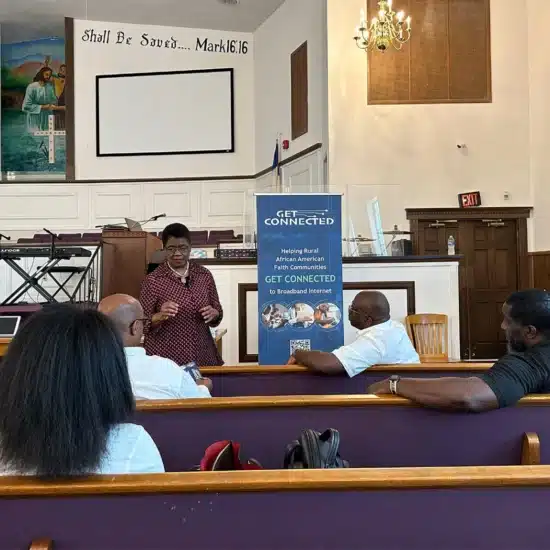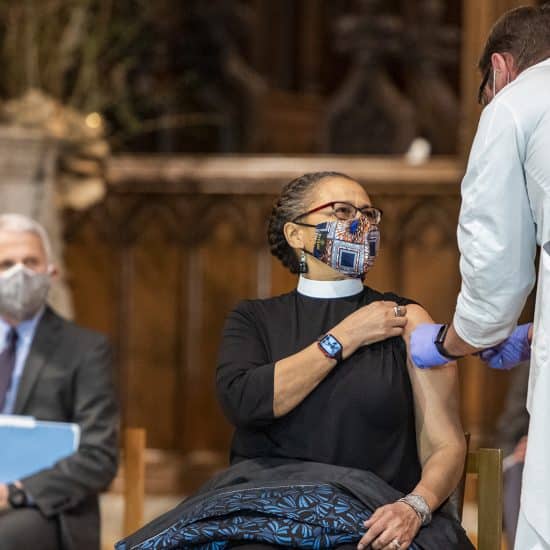What does it mean to participate with God in “making all things new”?
Many feel the answer to that question is key to the life and liturgy of the church. “We think of ‘creating culture,’” said Winn Collier, one of the pastors at All Souls in Charlottesville, Va. “We are part of — and contributing to — our culture. The question is whether we are doing it faithfully, purposefully and well.”
 |
Brad Andrews, worship arts coordinator for Missouri Baptist University, agrees. People live in culture, he said. “We’re doing a disservice if we don’t help our people connect the dots and see culture through spiritual lenses.”
He cautions against churches using popular culture to seem culturally relevant, however. He feels many churches have gone too far, forcing contextualization in ways that are both inauthentic and unwise.
Andrews visited one church that used a Saturday Night Live skit in worship. Not only did the skit not connect to the rest of the service, it also was poorly executed.
“You have to be honest with yourself in your ability to pull something off,” he said. Churches must use discernment and follow their giftedness.
George Mason emphasizes the need to interact with pop culture, but not allow it to take the lead. Mason, pastor at Wilshire Baptist Church in Dallas, Texas, points out that the gospel has a culture of its own. Pop culture is sometimes in conflict with gospel culture but often depicts some of the basic longings of creation.
“I love books, movies and music,” he said. “I think it is valuable to watch and read and listen for those places culture is getting it right and doesn’t know it.”
Biblical literacy is key, he feels. People must first know their own story — the gospel — otherwise they are likely to be drawn into another story.
“If our people don’t know their story, anything that sounds spiritual or religious, they’ll think is the same,” he said.
Convergence in Alexandria, Va., tries to influence, rather than mimic, culture.
“One thing that we have seen is that churches that strive to be relevant to culture tend to be behind,” pastor Todd Cullop said. “By the time they examine and evaluate culture, find ways to emulate it in their programs and style, and implement something, the culture has continued to change and the church is already behind.”
Convergence provides space for studios, concerts, rehearsals, performances, workshops, meetings, classes, artist salons and exhibits.
“We try to connect with emerging artists, those who will create and influence culture in the future, not necessarily in the present,” Cullop added. It is so much a part of community that transforming culture’s values through the work of emerging artists is in Convergence’s vision statement.
The Luminary, an art gallery at The Journey Church’s Tower Grove location in St. Louis, has a similar approach. Director James McAnally said the church views the Luminary’s role as service.
“It’s a way to serve the people around us,” he said. Some churches serve by starting soup kitchens. “We felt strongly the need to serve artists by finding out what they need and try to provide in meaningful ways.”
The Luminary provides space for artists to work and helps provide resources for aspiring artists to network and become professionals.
An artist’s work is incredibly personal, he said. “By showing them we care about them and what they do, we are serving where it is most personal; it’s a tangible way to speak of the gospel.”
All echo that engaging culture is an essential part of faith. Collier believes influencing culture is theological in nature.
“Creating a culture that lives in line with kingdom reality is an act of Christian obedience,” he said. “God meant what he said — he intends to ‘make all things new.’ He is in the work of creation and recreation. Do we believe that and join him, or do we stay about our own narrow agenda?”
All Souls is planning film nights and book events to help identify the art forms’ inherent value.
“Our conviction is that God speaks in all sorts of ways — and we actually short-circuit the subversive and wildly true nature of the gospel when we try to manipulate everything,” Collier said. “And in truth, with that kind of shortsighted mentality, we often miss the truth that form is offering us.”
Jennifer Harris is the News Writer for Word&Way.






